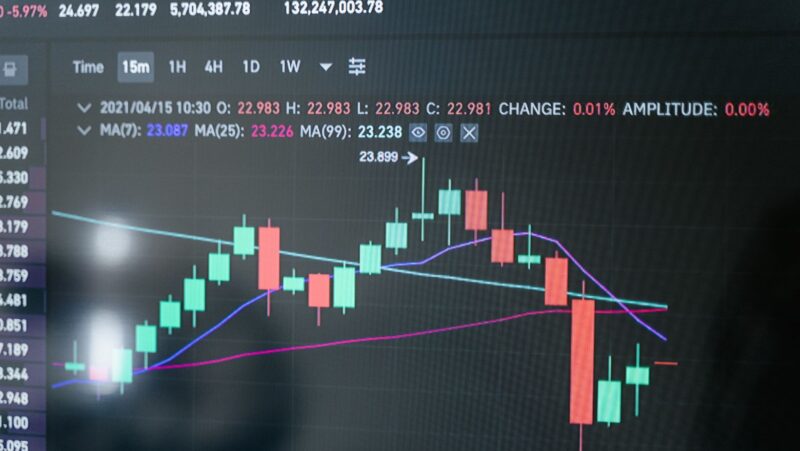Interested in various innovations? Find out what opinions are currently leading in the world of betting live betting options, and then read our thoughts on what sometimes unexpectedly influences the cryptocurrency market and what you should be prepared for.
The cryptocurrency market is like the nervous system of the internet: any touch, any loud noise — and it flinches. Elon Musk posts something on Twitter (now X), Donald Trump makes a comment about Bitcoin — and the charts skyrocket or crash. But why does this happen? And how can a beginner avoid getting overwhelmed? Let me explain in simple terms.
Crypto Is Not Just Technology — It’s Emotion
Unlike traditional stock markets, where prices are influenced by companies, laws, and financial reports, cryptocurrencies play by different rules. It’s the Wild West: barely regulated, flooded with news, and most decisions by investors are made on emotion rather than logic.
Here’s a simple example: In 2021, Elon Musk tweeted that Tesla would accept Bitcoin for cars — and the price went up. A few months later, he said he was backing out — and the price crashed. Now think about it: one person, one tweet, and billions of dollars shift instantly.
Why Is News So Important?
Because the crypto market is full of individual investors — people like you and me. They don’t have teams of analysts, economists, or legal advisors. They have a smartphone, an app, and a flood of news. Whatever headline they see — that’s how they react. Buy or sell. Simple as that.
Plus, the crypto market runs 24/7 — it doesn’t sleep like the stock market. A news article might drop in the middle of the night — and by morning, your coin’s value has either skyrocketed or tanked.
What Kind of News Affects the Market?
Here are some key types of events you should watch closely:
- Politics. Anything related to crypto regulations causes a reaction. If the U.S. suddenly bans or, conversely, simplifies crypto trading — it impacts the entire market. Same with China, Europe, or even small countries like El Salvador, where Bitcoin became legal tender.
- Economy. Decisions by the Federal Reserve, inflation rates, dollar strength, interest rates — it all plays a role. When the economy is shaky, people often run to crypto as a “safe haven.”
- Relationships Between Big Players. This is where it gets juicy. Think Trump and Musk. One’s a former U.S. president, the other a billionaire tech mogul. When they flex in the public space, especially around tech, free speech, or digital currencies — the market freezes, then either explodes upward or collapses.
Why Do Personal Relationships Affect the Market?
Because it all comes down to trust and expectations. Imagine Musk suddenly says that Trump is his partner in building a “new digital financial system.” Boom — the market believes crypto will get greenlit. And the reverse is true: if they clash, or one discredits blockchain — panic selling begins.
It’s like school rumors: someone yells, “The test is canceled!” and everyone’s happy. But later, it turns out it wasn’t true — and everyone’s already stressed out anyway.
What Should a Beginner Know to Start Predicting the Market?
- Filter the news. Don’t believe everything you read. Learn to separate hype from solid sources. Reddit and Telegram are fun, but not always reliable.
- Watch the whales — the big holders of crypto. Their moves often predict market trends. If large wallets are buying Bitcoin — take note.
- Understand the context. The same event can have different effects at different times. For example, someone saying “we’re investing in crypto” during a crisis is a positive sign. But in stable times, it might not move the needle.
- Follow the chain of events, not just one headline. For example, don’t just focus on “Musk supports Dogecoin.” Look at what he said before, who else is supporting it, and what the broader market is doing.
- Use analytics tools. Tons of free platforms — CoinMarketCap, CryptoQuant, Glassnode — help you analyze market behavior using data, not just emotion.
And Finally: Don’t Fall for the Hype
If you’re a beginner — avoid “hot” coins that spike after every tweet. Observe, analyze, and learn from others’ mistakes. Remember: the louder the news, the higher the risk. And quiet, stable coins often turn out to be more reliable in the long run.
Conclusion:
The cryptocurrency market is a living organism that reacts to everything — from geopolitics to tweets. And it’s especially sensitive to the personal dynamics between influential figures. So, if you want to understand this world, start with the basics: learn to read between the lines, figure out who benefits from which narratives, and always keep a cool head.





